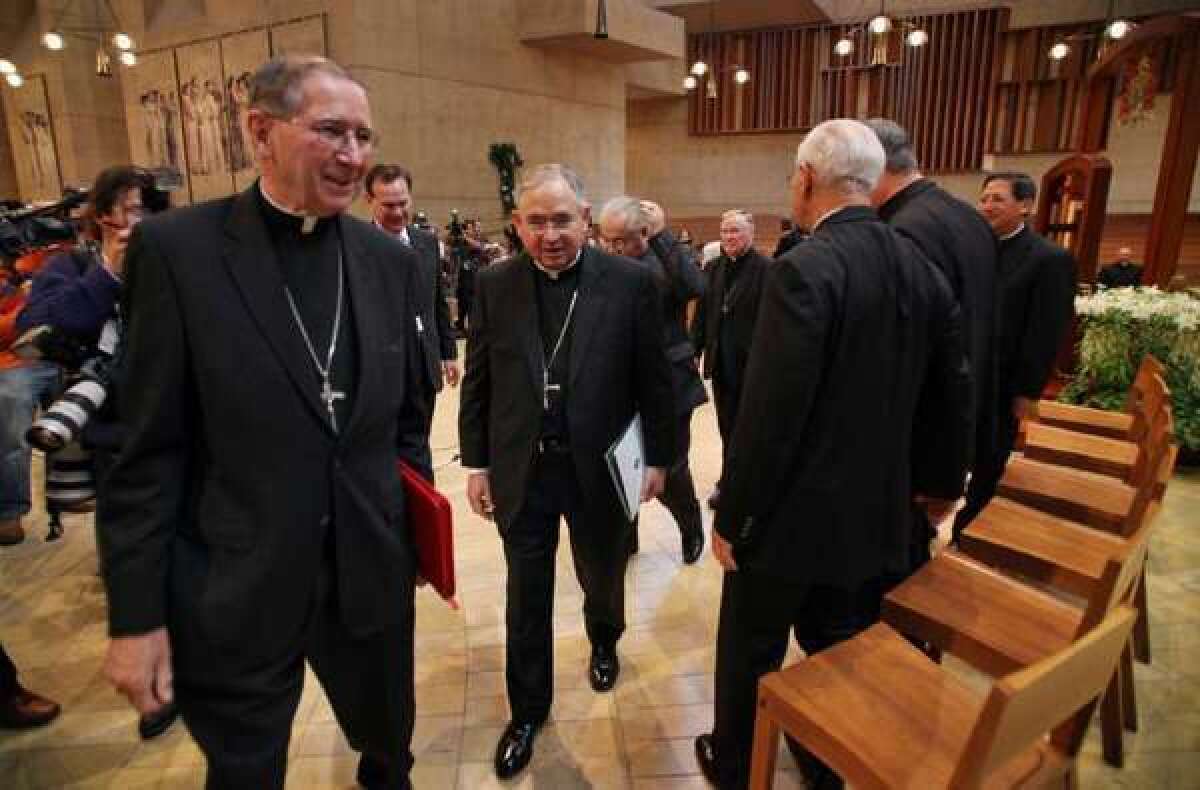Release of church files in sex abuse cases serves the public’s right to know

A judge’s ruling Monday requiring the Roman Catholic Archdiocese of Los Angeles to release thousands of pages of confidential records, including the names of church higher-ups, is an important victory for the public and victims of sexual abuse.
The battle over the clergy files has dragged on for far too long. In 2007, the church agreed to settle hundreds of claims against it for $660 million. That deal also required the release of clergy personnel files, which include internal memos, Vatican correspondence and medical records. But the release of the files has been on hold. Last year, a court-appointed referee vetted the documents and ruled that the names of church leaders who are not accused of abusing children should be redacted to avoid further embarrassment to the church. The Times and the Associated Press filed motions objecting to the referee’s decision to redact the names of church leaders, including Cardinal Roger Mahony and others.
Fortunately, that ruling was overturned by Los Angeles County Superior Court Judge Emilie H. Elias, who concluded that the public’s right to know what happened in such cases trumps the priests’ right to privacy.
Elias’ ruling is hardly surprising. Whether the church is embarrassed isn’t typically considered the legal standard applied by courts in such cases. Rather, the test is whether release of the records serves a greater public interest.
Surely, redacting the files to protect the church hierarchy would have served no public interest.
ALSO:
Living in L.A.’s world of guns
McManus: The worst job in Congress
More to Read
A cure for the common opinion
Get thought-provoking perspectives with our weekly newsletter.
You may occasionally receive promotional content from the Los Angeles Times.










